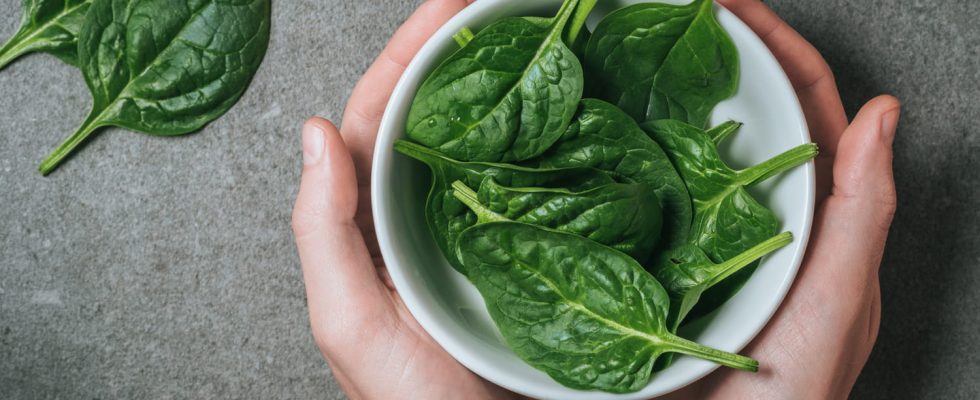By participating in protein metabolism, B group vitamins are involved in energy production. This is how to refuel when tired.
There is not just one B vitamin but a whole family, which is why we talk about B group vitamins (B1, B2, B3, B5, B6, B8, B9, B12, etc.). These vitamins are involved in the synthesis of neurotransmitters and in the development of the nervous system. B group vitamins participate in protein metabolism and are, therefore, involved in the energy production. Here are the foods richest in vitamin B, for optimal functioning of your body, with the advice of Florence Foucaut, dietitian-nutritionist.
Brewer’s yeast, one of the most complete sources of vitamin B
“Brewer’s yeast is an excellent source of B group vitamins, but also one of the most complete (B1, B2, B3, B5, B6, B9 and B12).” Brewer’s yeast in tablet form, for example, has an average content of 18.5 mg/100 g of vitamin B3, 5.4 mg/100 g of vitamin B5 and 697 µg/100 g of vitamin B9 or folate. “There yeast is found in the form of flakes to sprinkle on salads and yogurts. This makes it easy to do a treatment to stimulate hair and nail growth..”
Cereals, source of vitamin B3
Vitamin B3 or vitamin PP helps the normal functioning of the nervous system. “Grain products, particularly whole grains, are a source of vitamin B3”, says our nutrition specialist. It is therefore recommended to consume whole wheat, oats, wild rice, rye or even quinoa to ingest B vitamins, particularly B3.
Eggs and bananas rich in vitamin B8
Vitamin B8 (biotin or vitamin H) activates the other B vitamins, intervenes in the metabolism of micronutrients, but also in the hair. We find vitamin B8 in meat liver, legumes, soy, eggs and bananas.
Organ meats and meat for vitamins B5 and B6
Vitamins B5 (pantothenic acid) and B6 (pyridoxine) help reduce fatigue. They are involved in energy synthesis and protein metabolism, but also help with efficient psychological and mental functioning. Vitamin B5 is also important for concentration. “We mainly find vitamin B5 in offal, such as calf’s liver or kidneys, lentils, avocado, peanuts, cashewsin Asian shiitake mushrooms as well as in egg yolks.” “Vitamin B6 plays an important role for the integuments. By intervening in cell division, vitamin B6 restores strength to nails and hair, while stimulating their growth. It helps in the regeneration of the skin. As our dietetics and nutrition expert tells us, vitamin B6 is present in good quantities in cereal products, particularly wholegrain products, but also in meats and vegetables. dried vegetables (lentils, beans, chickpeas, split peas and broad beans). We also find it in potatoes and fish.
Green vegetables rich in vitamin B9
Vitamin B9 or folate is involved in the synthesis of red blood cells and in the production of genetic material. Vitamin B9 is particularly involved in cell growth and renewal: it is essential for fetal development. “Folates are extremely important in pregnant women, but also in those who wish to procreate. Indeed, a deficiency in vitamin B9 increases the risk of spina bifida, a very serious anomaly of the spinal cord. In predisposed women, supplementation is often recommended by the doctor. In terms of nutrition, foods rich in vitamin B9 or folate are, generally speaking, green vegetables like broccoli, leafy vegetables like spinach, collards and salad as well as in aromatic herbs, particularly parsley.” Legumes and liver are also sources of vitamin B9. Be careful, however, as a precautionary principle, the consumption of liver should be avoided during pregnancy, because it contains a high quantity of vitamin A.
Fish and dairy products to stock up on vitamin B12
Vitamin B12 participates in the functioning of the nervous system by supporting the synthesis of neurotransmitters. It protects the nerves and optimizes their functioning. It is the only one that can be stored in the body. “The specificity of vitamin B12 is that it is only supplied to the body by the consumption of products of animal origin, such as offal, meat and eggs. We also find it in fish, shellfish and dairy products.”
According to Florence Foucaut, “for optimal functioning of our body, we must cover all the needs in all the vitamins of group B. If we have a balanced and varied diet, with sufficient consumption of fresh fruits and vegetables, cereal products and health products animal origin, we have no reason to be deficient”. The risk of deficiency in vitamin B group is thus low if the diet is rich in fruits, vegetables and cereals. Only that of vitamin B12 is increased in people reducing their consumption of animal foods, a phenomenon also visible among vegetarians, vegans and even flexitarians. Even if vitamin B12 can be stored in the liver, B12 reserves over time cannot cover needs. “Supplementation is therefore mandatory in this type of diet.” In the event of a deficiency, according to our expert, these would rather be signs linked to a lack of vitamin B12, leading to anemia and nervous system disorders such as tingling or muscle weakness.
Thanks to Florence Foucaut, dietician-nutritionist and member of the French Association of Dietitians and Nutritionists (AFDN)
